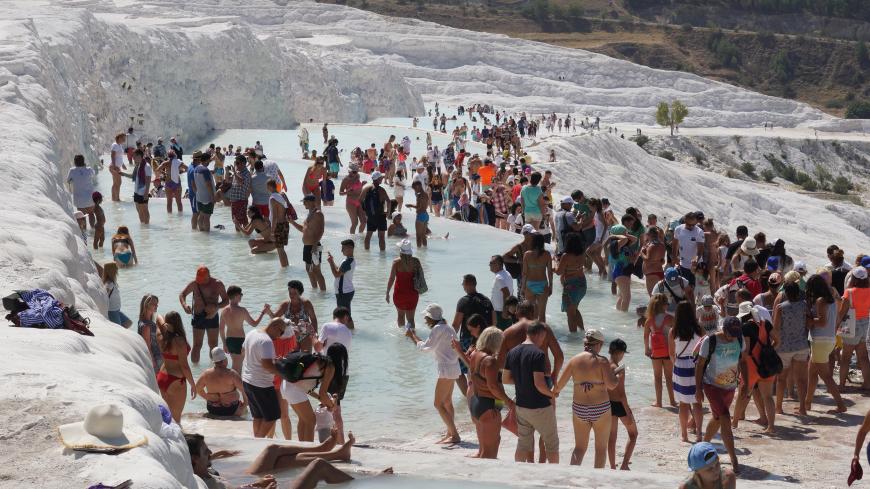Hierapolis is the most popular archaelogical site in Turkey, with its peak of 2 million tourists in 2014 and a comparable number anticipated for 2018. In fact, most of them — largely Russians on day trips from Antalya — see only the natural features of the place: the white cascades of travertine created by thermal waters flowing downhill. The venue is better known in Turkish as Pamukkale, literally the “cotton castle,” whose light blue natural pools are featured in every tourism brochure.
They pay for both — there is no separate entrance, as the nature and history are deeply intertwined — but only a small fraction of the visitors go inside the Hellenistic and Roman ancient city, founded on a seismic fault line and hot springs by the Phrygian people. Few tourists walk the paved roads among the ruins or sit in the well-preserved theater. Fewer still are adventurous enough to climb the steep hill overlooking Pamukkale and Hierapolis — guides apparently advise against going there — where the Christian St. Philip the Apostle was killed, buried and venerated for many centuries.



